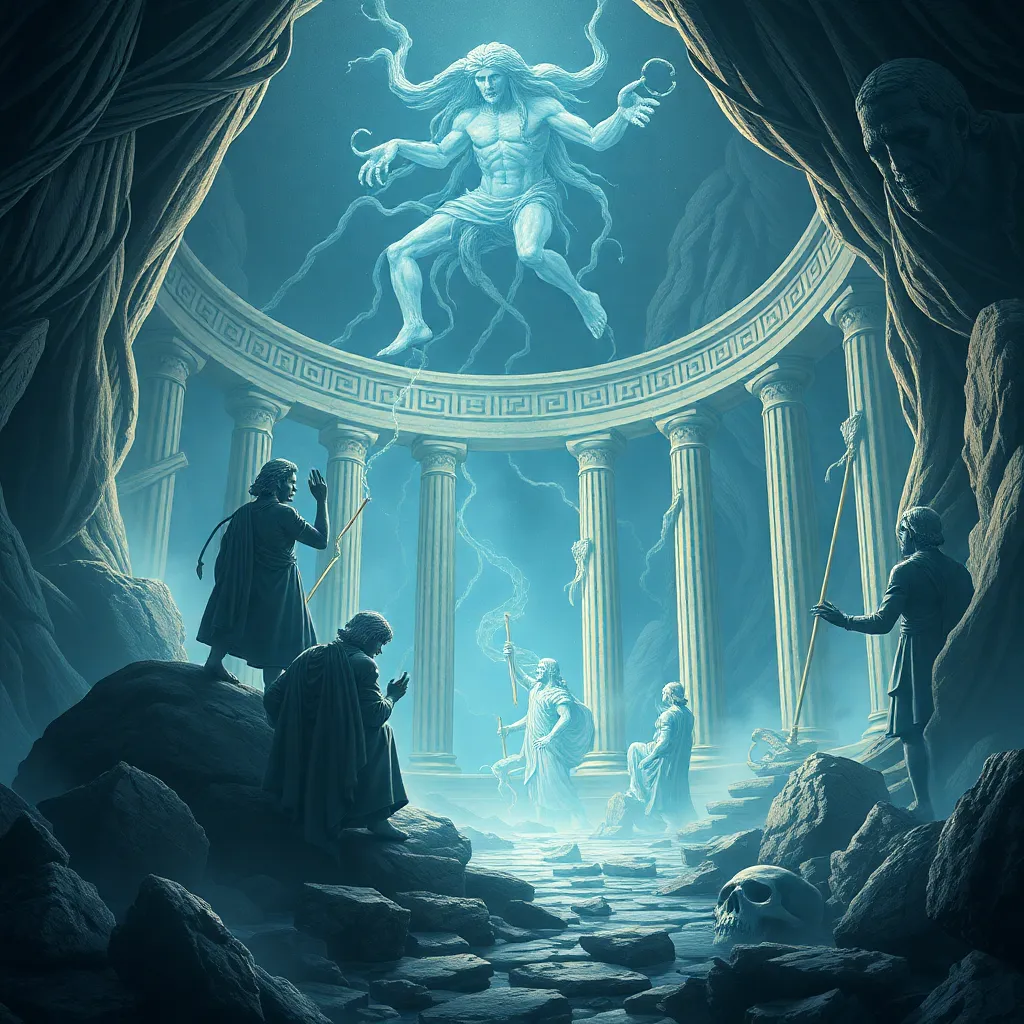The Underworld and the Influence of Fate: How Destiny Guides the Dead
I. Introduction
The concept of the Underworld has fascinated humanity for centuries, appearing in various forms across different cultures. From the Greek Hades to the Egyptian Duat, each civilization has crafted its own narrative surrounding the afterlife, reflecting its values and beliefs. Central to many of these narratives is the theme of fate and destiny, particularly in relation to the souls of the deceased. This article explores how the Underworld serves as a mechanism for fate to guide the souls of the deceased, influencing their journeys and experiences in the afterlife.
II. Historical Perspectives on the Underworld
In ancient mythologies, the Underworld is often depicted as a shadowy realm where souls go after death. Different cultures have their own interpretations of this domain, characterized by unique beliefs and rituals.
- Greek Mythology: The Underworld is ruled by Hades, a place where souls are judged and assigned to different realms based on their earthly deeds.
- Roman Mythology: Similar to the Greeks, Romans believed in a structured afterlife, with the god Pluto overseeing the souls.
- Egyptian Mythology: The Duat represents a complex underworld where the soul undergoes trials before reaching the afterlife, guided by Osiris.
Across these mythologies, the role of fate is pivotal. Each tradition assigns significance to the actions taken during one’s lifetime, determining the soul’s destination and experience in the afterlife.
III. The Nature of Fate in Mythology
Fate, often portrayed as a predetermined force, plays a crucial role in ancient narratives. It signifies the inevitable outcomes that await individuals, regardless of their choices. In Greek mythology, the Moirai, or the Fates, are three sisters who weave the threads of each person’s life, illustrating the intertwining of free will and destiny.
- Clotho: Spins the thread of life.
- Lachesis: Measures the length of the thread.
- Atropos: Cuts the thread, signifying death.
This interplay raises intriguing questions about the extent of free will in the face of destiny. While individuals can make choices, the ultimate fate is often portrayed as inescapable, particularly in death.
IV. The Underworld as a Realm of Judgment
The Underworld is not merely a resting place for souls but a realm of judgment, where the deeds of the living are assessed. Various mythologies depict this judgment process in different ways.
- Elysian Fields: A paradise for virtuous souls, representing a reward for a life well-lived.
- Fields of Punishment: A realm for the wicked, where souls endure suffering as a consequence of their misdeeds.
- Duat: In Egyptian mythology, souls must navigate trials and face the Judgment of Osiris, determining their fate in the afterlife.
In each case, fate plays a critical role in dictating the souls’ journeys post-death, reinforcing the moral order of the universe.
V. Symbolism of the Underworld in Literature
The Underworld has been a powerful symbol in literature, representing the complexities of life, death, and destiny. Notable works include:
- Dante’s “Inferno”: A vivid portrayal of Hell, where souls are punished according to their sins, embodying the concept of divine justice.
- Virgil’s “Aeneid”: Depicts the journey of Aeneas to the Underworld, emphasizing the importance of fate in guiding his destiny.
These narratives not only illustrate the Underworld’s characteristics but also convey moral lessons about the consequences of one’s choices, reinforcing the connection between fate and the afterlife.
VI. The Role of Deities in Guiding Souls
The Underworld is overseen by powerful deities who embody the principles of fate and destiny. Key figures include:
- Hades: The Greek god of the Underworld, representing the inevitability of death.
- Osiris: The Egyptian god of the afterlife, symbolizing resurrection and judgment.
- Anubis: The Egyptian god associated with mummification and guiding souls to the afterlife.
These deities play an essential role in rituals and practices aimed at appeasing them, ensuring a favorable fate for the deceased. Offerings and prayers were common to seek their guidance and favor.
VII. Modern Interpretations of the Underworld and Fate
In contemporary society, views on the afterlife and destiny continue to evolve. Ancient beliefs have influenced modern spirituality, leading to diverse interpretations of fate and the afterlife.
- Spirituality: Many people explore the concept of reincarnation and the cyclical nature of life and death.
- Philosophy: Philosophical discussions about determinism and free will often invoke themes of fate, particularly in the context of morality and ethics.
The psychological implications of believing in fate and an afterlife can be profound, providing comfort and a sense of purpose in the face of mortality.
VIII. Conclusion
In conclusion, exploring the relationship between the Underworld and the concept of fate reveals deep insights into ancient beliefs and their lasting impact on modern society. The Underworld serves as a powerful metaphor for the consequences of our actions, guided by the inexorable force of destiny. Understanding these themes encourages reflection on personal beliefs about fate and the afterlife, inviting each individual to consider their own journey and the moral implications of their choices.




